Goal: Support and promote the improvement of people with disabilities and their family members/caregivers life quality, through multi-sectoral provision of their basic and inclusive needs, taking into account a person-centered approach at all stages of life; to protect the dignity, interests and rights of people with disabilities, to promote their integration into society, and to increase their capacity and potential to cope with difficult life situations.
From the beginning of 2024 until June 55,409 services were provided by the Inclusion program, in particular:
- 9,205 people with disabilities are covered
- 4,252 family members of people with disabilities are covered
- 340 staff members were trained
- 3 centers of supported living facilities are functioning
- 15 Inclusive spaces for children with disabilities
- 19 Inclusive spaces for adults and young people with disabilities
- 11 Day program spaces for people with disabilities (18+)
- 25 Support groups for parents/caregivers/family members
Supported living
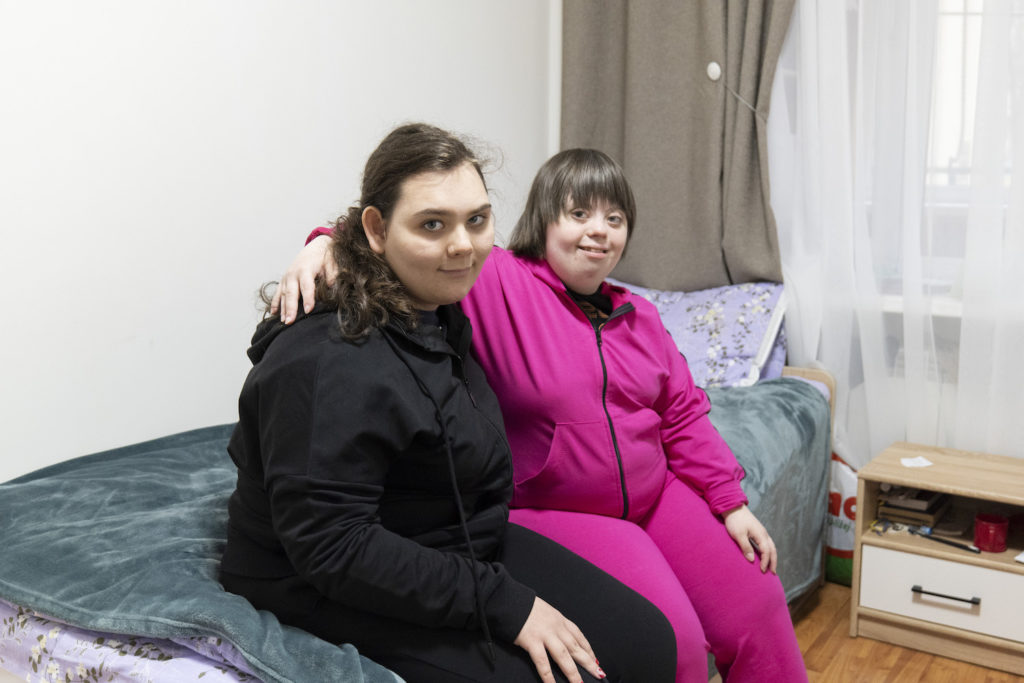
The Caritas supported accommodation service has been available since July 2023. It is for people with mental and intellectual disabilities aged 18 to 45. Currently, there are 2 houses and 1 apartment for assisted living. There are 15 people with disabilities. They live and learn independent living skills under the supervision of assistants and social workers around the clock, according to the individual needs and capabilities of each person. Supported living aims to create the most dignified and favorable conditions for beneficiaries to acquire independent living skills and socialize in the community and society. This support can be temporary for those who can learn the skills to live independently in the future, and lifelong for beneficiaries who cannot lead an independent lifestyle due to their diagnosis. The duration of the service depends on the individual characteristics of each beneficiary and their ability to acquire certain skills.
Psychologist
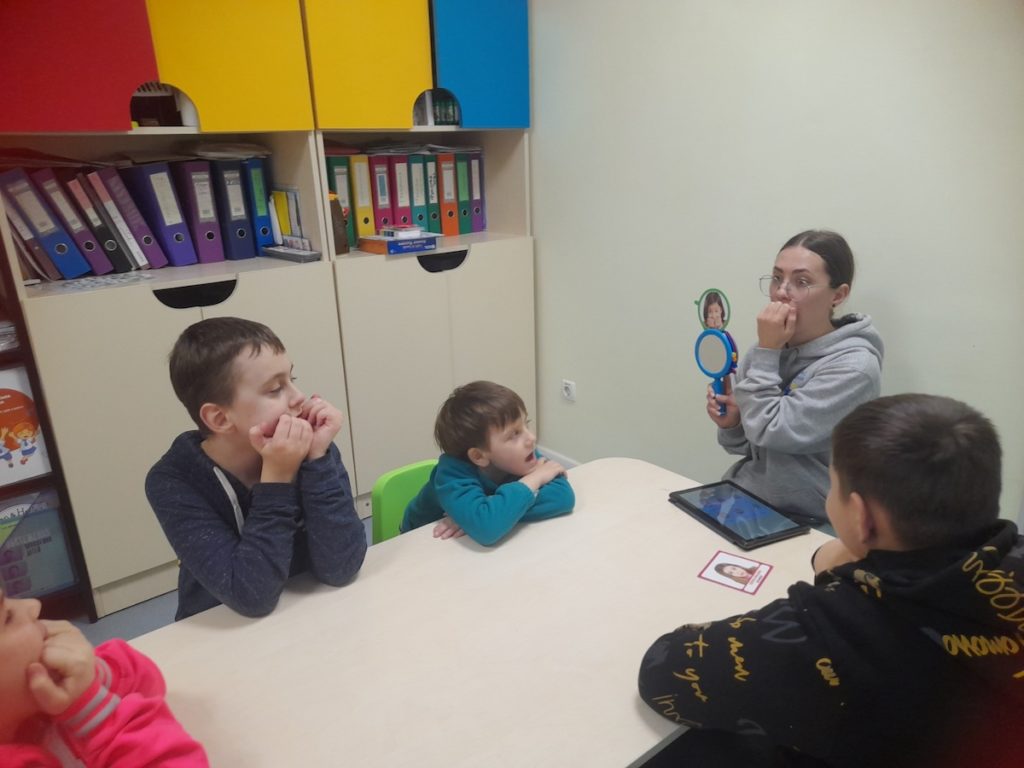
The psychologist works on the development and correction of mental processes and psychological conditions, including behavioral disorders, hyperactivity, etc. The main area of focus is the work and support of parents/guardians and family members raising a person with a disability through seminars, consultations, lectures, and support of parental self-help groups.
Physical therapist
A physical therapist works on physical development, correction of the motor apparatus, gross and fine motor skills, flexibility, balance and coordination. Implements and adapts the program of correctional work, educates and consults parents/guardians.
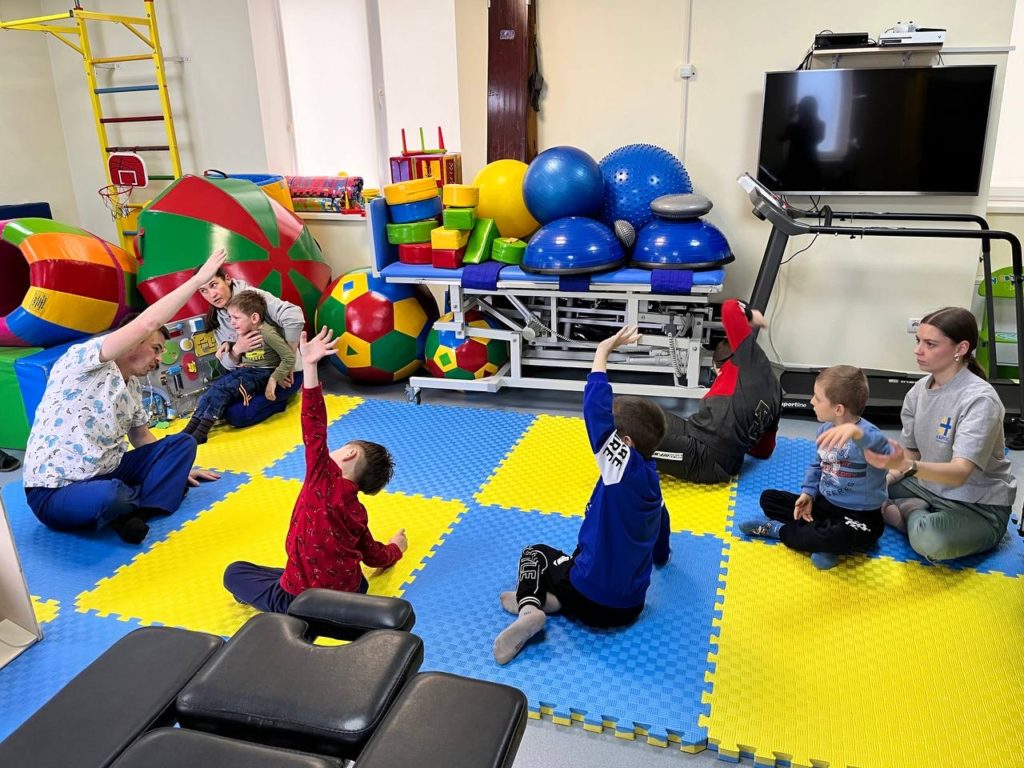
Speech therapy
The speech therapist works on the development and maintenance of communication skills, speech breathing, cognitive processes, articulatory motor skills, phrasal speech formation, and correction of sound pronunciation. He uses a person-centered approach using didactic games and materials, introduces alternative augmentative communication.
Self-service
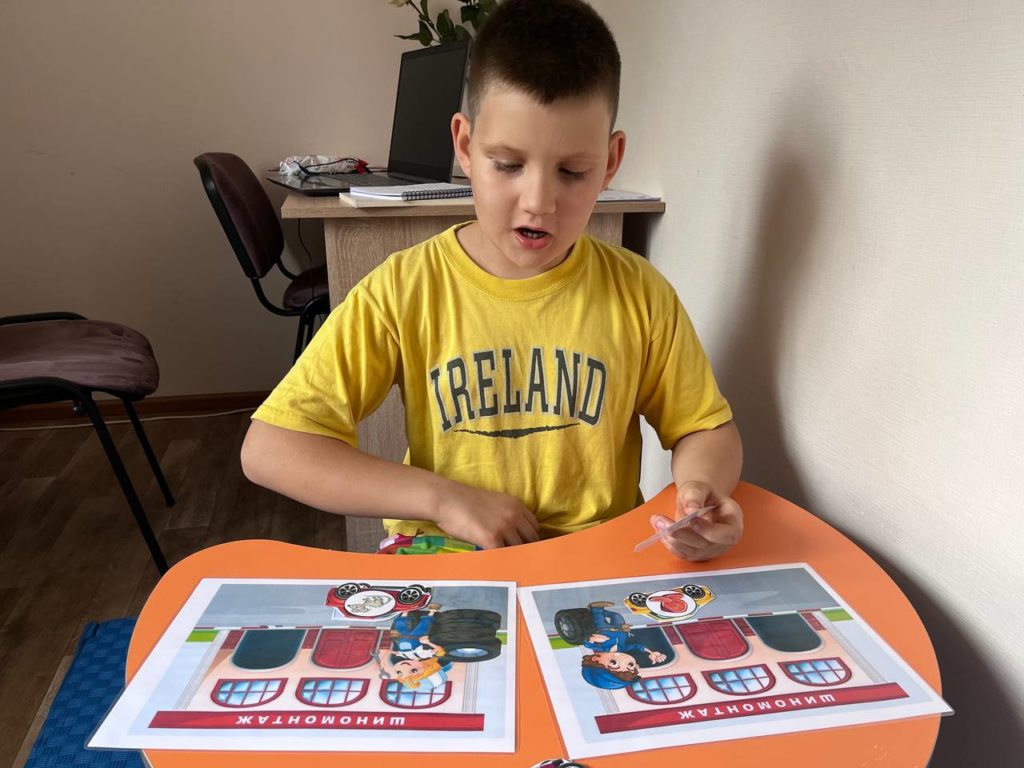
Self-service activities help beneficiaries gain skills and experience that contribute to their independence. Through participation in trainings, they learn about health and hygiene, using public transportation, shopping and cooking.
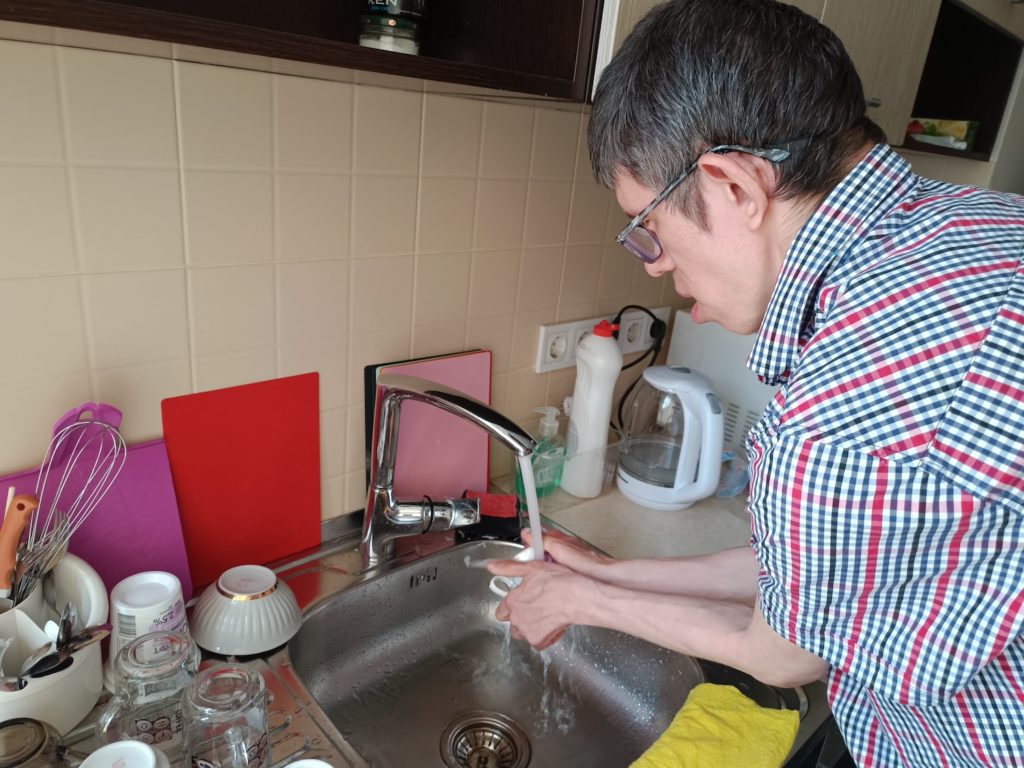
The program organizes activities that develop these essential skills for everyday life. This increases their self-esteem and allows them to integrate more actively into society. As a result, beneficiaries become more autonomous and self-sufficient.
Cooking (children / adults)
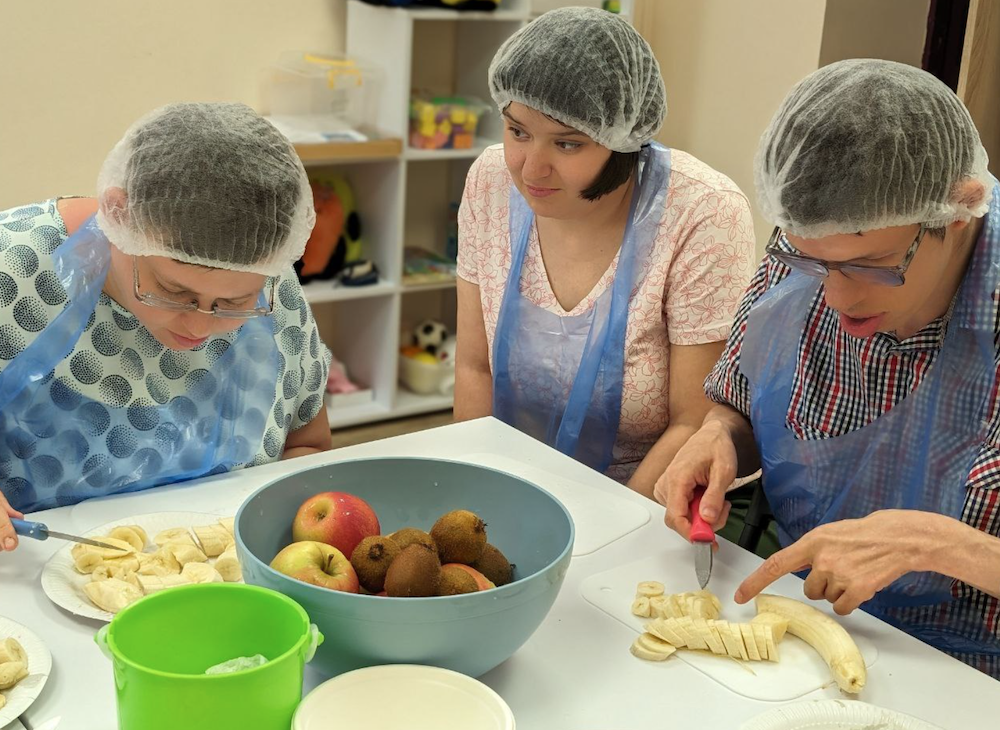
During the cooking classes, people with disabilities learn the basics of cooking, including ingredient selection, food preparation, and cooking techniques. Social workers provide instructions and demonstrations on how to prepare a variety of dishes, emphasizing safety and hygiene in the kitchen. Participants have the opportunity to practice their skills under the supervision of staff/supervisors, receiving individualized advice and support. The training also helps to develop social skills as participants work in teams and interact with each other. As a result, they become more confident in their abilities and can prepare their own meals at home.
Fundraising
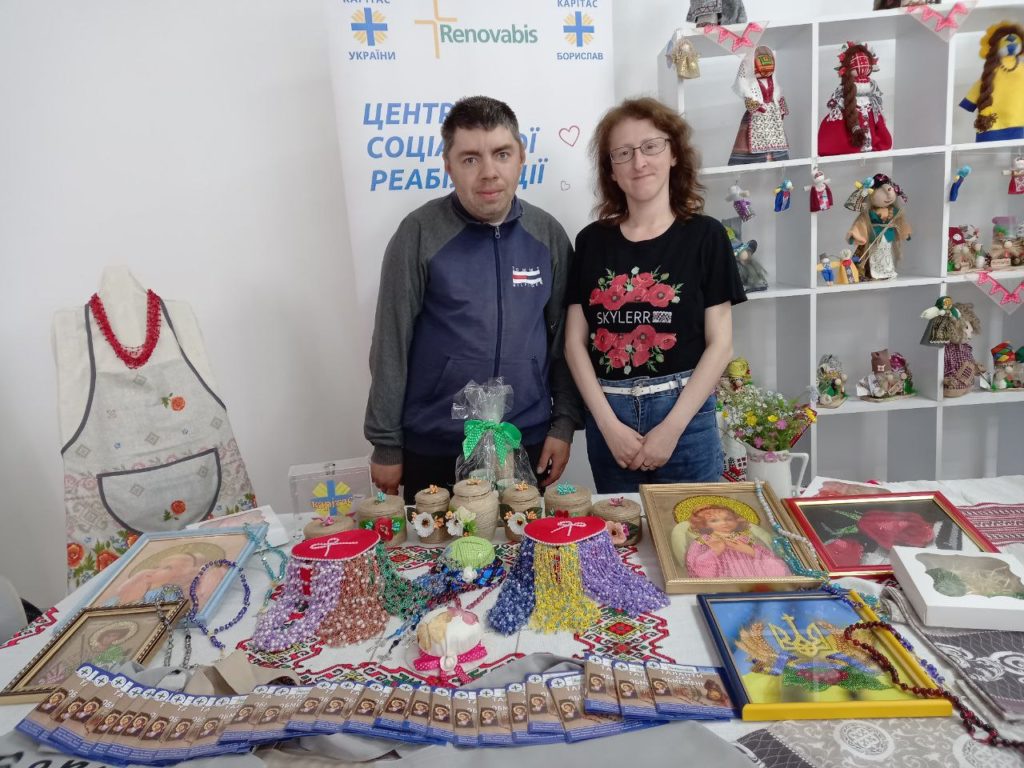
Fundraising to support inclusive spaces in the Caritas network is aimed at raising financial resources to create and develop accessible environments for people with disabilities. It includes organizing charity events such as concerts, auctions, and craft fairs where participants can make donations. Online platforms and social media are also used to raise funds from a wide audience. Cooperation with corporate sponsors and grant organizations allows us to attract large contributions for the implementation of inclusive projects. The funds raised are used to equip spaces, hold educational and cultural events, and provide necessary services to people with disabilities and their families.
Professional development
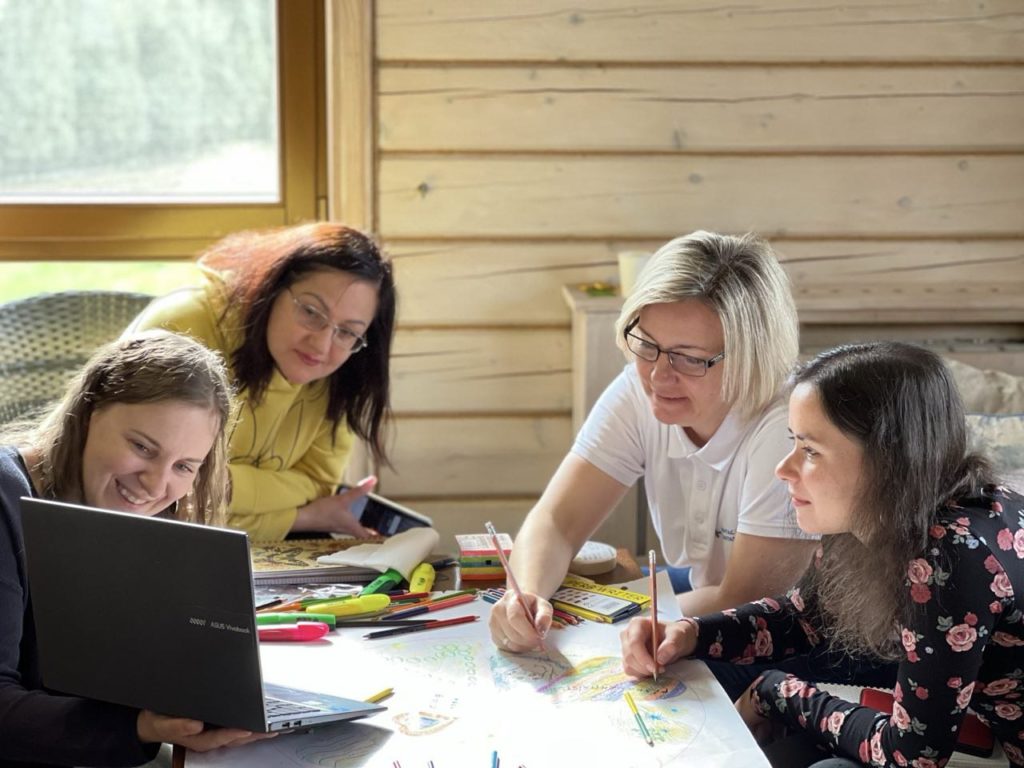
Training for staff and professional development are essential for ensuring high levels of professionalism and work efficiency. They allow employees to update their knowledge and skills, adapting to new technologies and methods. This improves service quality, meets customer needs, and enhances the organization’s competitiveness. Additionally, training motivates employees, fostering their personal and professional growth. Consequently, investing in training and professional development contributes to the overall success and sustainable growth of the organization.
Among the beneficiaries indicated, the following services were used:
- Speech therapist – 2,124 people
- Social workers – 2,160 people
- Physical therapists – 2,131 people
- Psychologist – 2,774 people
- Social taxi – 317 people
List of partners:
Caritas France, Caritas Poland, Caritas Italy, Caritas Spain, Caritas Austria, Cordaid, UHF, NIN

